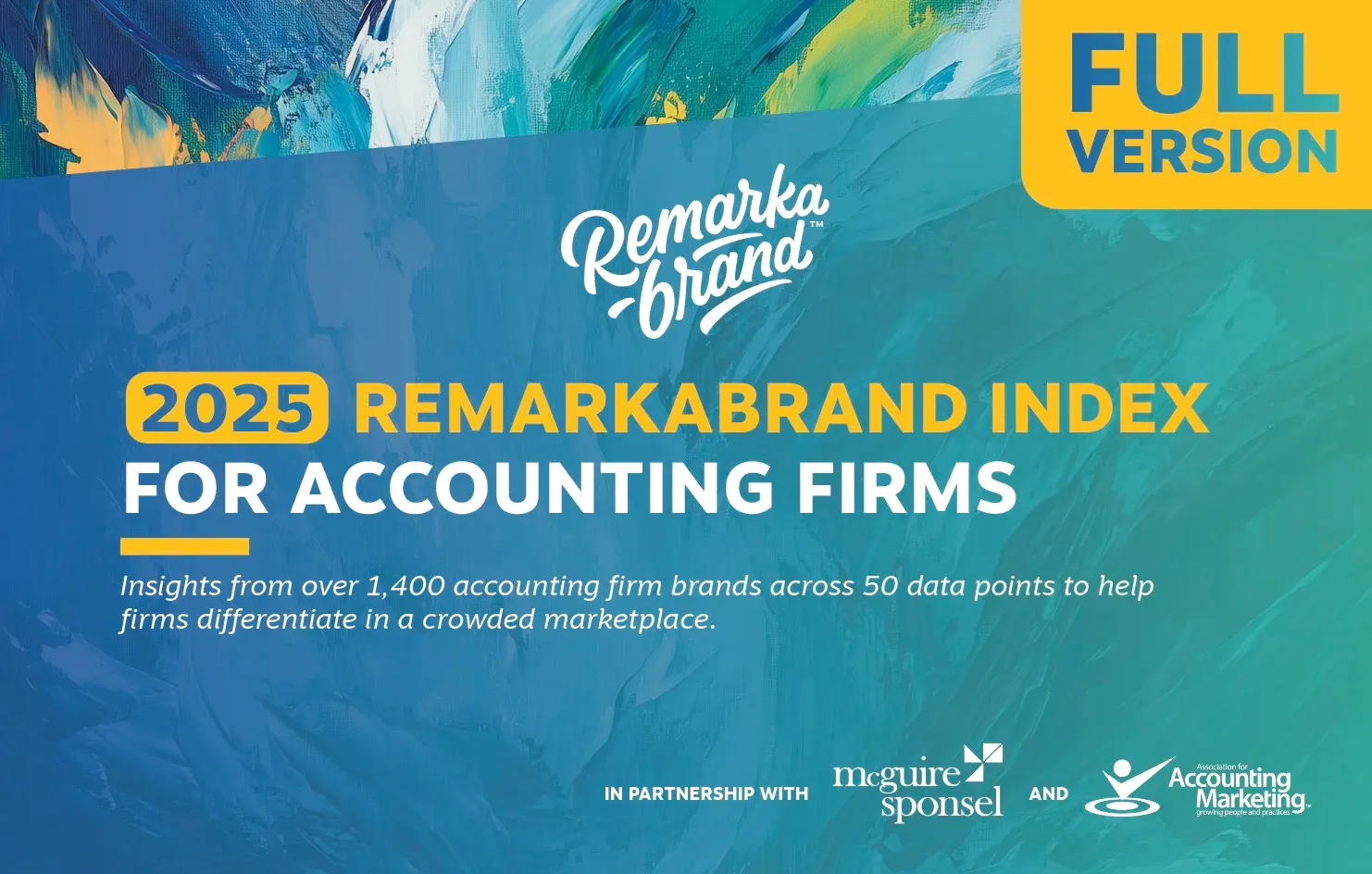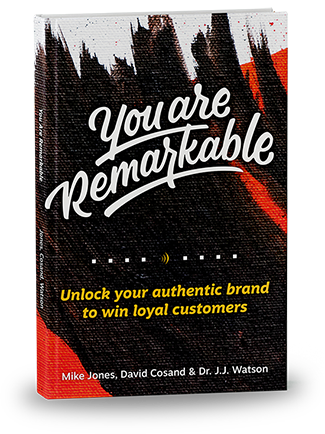“The world needs you as you are.”
Sure, you’ve heard it before. You’ve probably rolled your eyes.
It’s hard not to hate that message when everyone from YouTube personalities to TikTok influencers collect millions of likes, shares, and subscribes by standing in front of their cell phones and doing a Fortnite dance as a way of being unique and expressing themselves… and for some strange reason, it seems to work.
If everyone gets a trophy for just existing, then what’s so special about the trophy?
But regardless of what everyone else is doing or saying, the truth is still there.
Your entire company is stocked with skills, talents, ideas, personalities, and core motivations that equip you to serve others in a unique way. From the services you offer, to how you interact with clients, cohorts, and other entities, you can’t be replicated.
In other words, you’re remarkable. And it’s a loss when your branding, marketing, and whole organization chases after trends or copies someone else. Especially when you do this instead of telling the truth about who you are and what you offer. It’s a surrender of your own creative agency. Regardless of the trends, people respond to truth, consistency, and authentic communication.
In this article, we’ll examine the dangers of superficial branding, and the indispensable alternative of authentic, truthful branding.
Facing Outward
Superficial branding defines a company based not on anything inwardly true about itself, but on an impression it wants to create outwardly.
Superficial branding is “fake it ‘til you make it” branding. It defines a company by its perception of what people expect it to be.
Most often superficial branding shows up as copycat branding. Mimicry of others who have been successful in the same industry. A company brands itself much like a high school student, copying and pasting an encyclopedia article into their term paper.
Imitation may be the most sincere form of flattery, but it’s also the easiest way to be accused of plagiarism.
Superficial branding doesn’t fool anybody and it isn’t hard to detect. It stands out like bad acting in a documentary.
Superficial branding has three aspects:
- It is caused by “Organizational Imposter Syndrome”
- Is expressed as “Copycat Creative”
- And results in undermining your team
Superficial branding is dishonest. While it aims to attract people, it ends up scaring them away. One of the most attractive traits a person or an organization can have in a virtual world of carefully crafted appearances is honest depth.
Being an Imposter Comes From Doubt
Many people approach branding as nothing more than a recipe for marketing based on what sort of customer they want to reel in.
They think: “In order to attract that kind of customer I’m going to have to talk like this and look like that.” My audience wants something like that, because that’s what all my competitors are doing, so that’s what I need to make myself into.
But the truth is that this rests on a shallow perception of how people actually make decisions. It comes from the behaviorism of the early 20th century, where customers are Pavlov’s dog—ring the right bell and they’ll salivate.
This approach doesn’t give customers enough credit for being able to recognize and understand something new. It wrongly assumes they won’t be able to detect something fake when they see it. Unlike dogs, customers won’t keep on trusting you after you trick them.
The deeper problem beneath shallow branding is what we might call Organizational Imposter Syndrome.
For individuals, “Imposter Syndrome” is an eerie feeling of inadequacy around one’s equally successful peers. Those who suffer from Imposter Syndrom often believe their success must rest on some mistake, a stroke of luck, or fraud. In practical terms, it means constantly doubting oneself and hiding differences in order to avoid being revealed as a fake.
B2B companies and organizations can suffer from the same difficulty.
They aren’t comfortable in their own shoes, and they doubt themselves. On some level, they believe that having reached the point they’ve reached in business is a kind of cosmic mistake. A matter of a few lucky breaks.
Perhaps it is a start-up that genuinely hasn’t accomplished anything, and so it thinks it needs to pretend to be something it isn’t in order to be taken seriously.
Or maybe it is a business that has genuinely grown to a new scale through hard work, but now feels daunted when surrounded by competitors that it previously looked up to. Whatever brought the organization to its current place, it feels like its true identity needs to be hidden to fit in with its competitors.
Downstream Consequences
Organizational Imposter Syndrome means outsourcing your company’s vision and goals to whichever company is leading your industry.
It means plagiarizing their brand story, and hoping your customers won’t catch you.
Look at any industry, and you’ll notice that the leaders are almost always the authentic ones, at least on some level. They’re leading because they are trusted, and they’re trusted because they are authentic. Most of the “followers” in the industry, on the other hand, have brands that feel artificial. Often they are simply copying whatever the “successful” leaders in the industry do. They’re hoping that they can hitch a ride on the train or skim off some of their competitor’s customers. They can’t be authentic, because they’re just playing Follow the Leader.
There’s a real maturity in recognizing that you’ll never fully be able to say you’ve “made it” or feel like you’ve fully “arrived.”
But feeling like you’ve arrived isn’t the point—the point is to continue serving your customers well.
When a company reaches its end, it’s dead. Because of that, there is no need to try to pretend that you’ve accomplished more than you have. Don’t pretend that you’re just like whoever you look up to in your industry.
You should learn from competitors, but you don’t need to be them.
Being Authentic Means not Fighting Yourself
Accidental branding, non-branding, arbitrary branding, and superficial branding are ultimately battles against a company’s actual core.
These approaches to branding start out easy, but gradually drain resources as the marketing team struggles to maintain the lie. Whether they’re driven by business metrics, wishful thinking, or shortsightedness, they lead you down the path of making promises that you can’t keep. And making a promise that you can’t keep doesn’t help anybody.
Ultimately, the reason an organization exists is to serve people. Having worked with dozens of brands for over 10 years in Arizona and beyond, we know that’s what makes you remarkable.
The better way is to know your authentic identity and communicate it honestly—even if that means stepping back and investing the time and energy to discover it, understand it, and integrate it into everything you say and do.
If you need some help discovering and presenting how remarkable you are, contact us, subscribe to our monthly newsletter, or check out our other free branding resources.
The world needs you, and it excites us to see people, organizations, and B2B companies like yours step up and meet that need.



